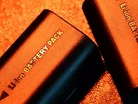University of Surrey and University of Bristol to develop battery alternatives

Two UK universities have partnered with Superdielectrics, the engineering and research firm, on a project to develop lithium-ion battery alternatives.
The new project follows the results the Universities of Surrey and Bristol found when testing novel polymer materials.
The findings on the materials with dielectric properties between 1,000 and 10,000 times larger than electrolytes have been converted into ‘device’ scale demonstrations.
The two educational establishments and the engineering firm have announced they will be researching, developing, and testing supercapacitators.
From the results Superdielectrics, the developer of the technology, aims to create a researche and production centre to enable further technological advances.
SEE ALSO:
-
Norway appoints ABB to provide chargers for its biggest electric bus initiative
-
Nissan has developed 40kWh cells for batteries used in its LEAF electric vehicle
-
Jaguar Land Rover director to head Faraday Battery Challenge
The supercapacitator battery alternative is more time-efficient as it uses electrodes and electrolytes, which charge faster.
Opposed to lithium-ion batteries, supercapacitators can charge and recharge for a significant amount of cycles whilst remaining speedier than traditional cells.
However, so far supercapacitators cannot compete with conventional batteries in regards to storage, as they can only hold approximately one-twentieth of what a lithium-ion cell can.
China has adapted the modern technology for its buses but has found they require recharging at almost every stop.
The institutions will be testing single layer cells charged with 1.5 volts to power small devices, and three-cell stacks that can be rapidly charged to power an LED.
The University of Bristol will also work on another project, creating a parallel cell structure allowing capacitance and voltage operations to separately be controlled.
- Nissan: Striving To Safeguard EV Manufacturing InterestsSustainability & ESG
- Be.EV Sheffield Charging Hub Signals EV Manufacturing GrowthSustainability & ESG
- Dassault Systèmes: Driving UK Aerospace Innovation ForwardsProduction & Operations
- Ford calls for more electric vehicle charging infrastructureTechnology

